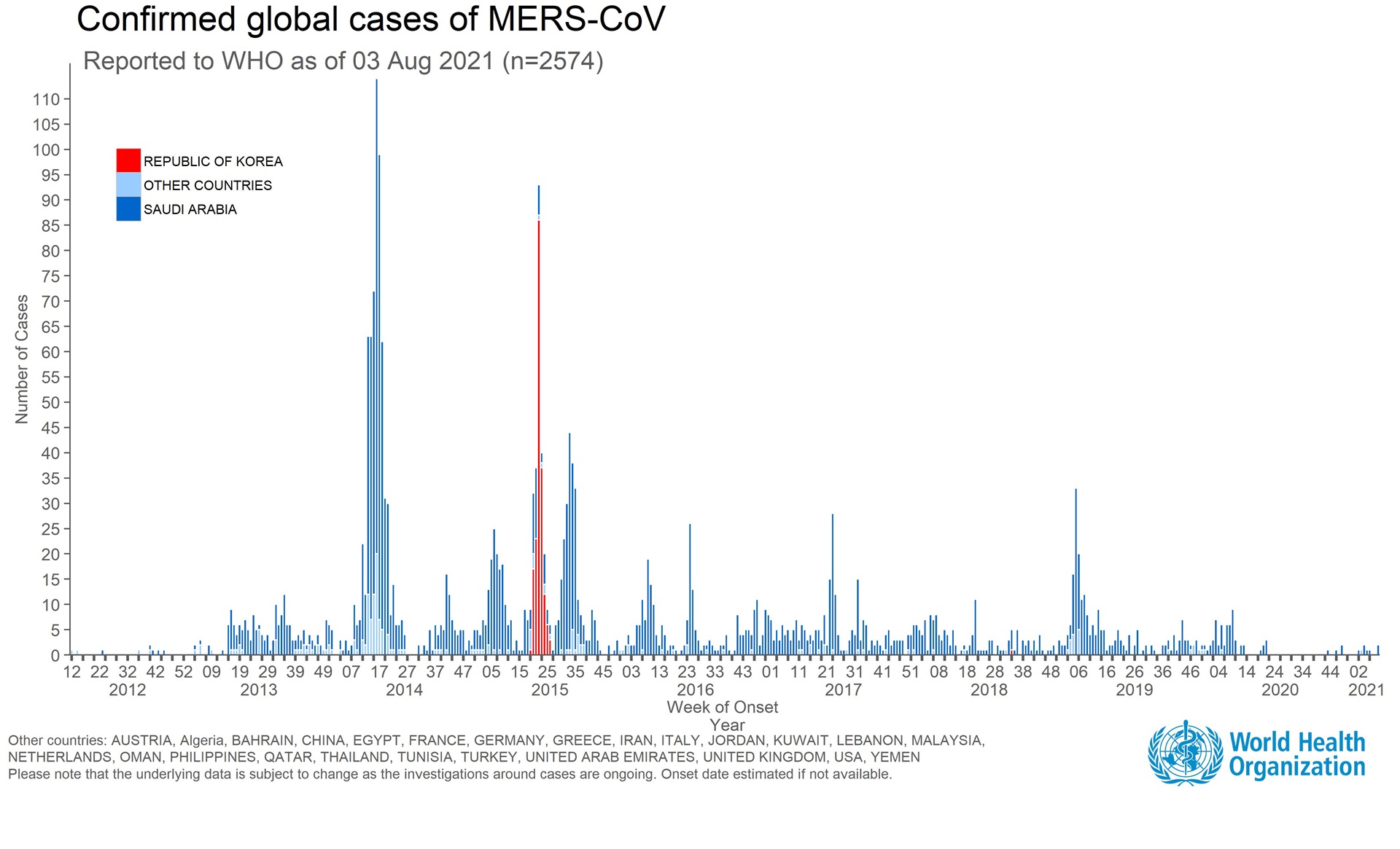Middle East respiratory syndrome coronavirus (MERS-CoV)
Middle East respiratory
syndrome coronavirus (MERS-CoV) is a virus transferred to humans from infected
dromedary camels. It is a zoonotic virus, meaning it is transmitted between
animals and people, and it is contractable through direct or indirect contact
with infected animals. MERS-CoV has been identified in dromedaries in several
countries in the Middle East, Africa and South Asia. In total, 27 countries
have reported cases since 2012, leading to 858 known deaths due to the
infection and related complications.
The origins of the
virus are not fully understood but according to the analysis of different virus
genomes it is believed that it may have originated in bats and later transmitted
to camels at some point in the distant past.
Human-to-human
transmission is possible, but only a few such transmissions have been found
among family members living in the same household. In health care settings,
however, human-to-human transmission appears to be more frequent.
MERS-CoV infections
range from showing no symptoms (asymptomatic) or mild respiratory symptoms to
severe acute respiratory disease and death.
A typical
presentation of MERS-CoV disease is fever, cough and shortness of breath.
Pneumonia is a common finding, but not always present. Gastrointestinal
symptoms, including diarrhoea, have also been reported. Severe illness can
cause respiratory failure that requires mechanical ventilation and support in
an intensive care unit. The virus appears to cause more severe disease in older
people, people with weakened immune systems and those with chronic diseases
such as renal disease, cancer, chronic lung disease, and diabetes.
Approximately 35% of
patients with MERS-CoV have died, but this may be an overestimate of the true
mortality rate, as mild cases of MERS may be missed by existing surveillance
systems. The case fatality rates are currently counted only amongst the
laboratory-confirmed cases.
Until more is
understood about MERS-CoV, people with diabetes, renal failure, chronic lung
disease and immunocompromised persons are considered at high risk of severe
disease from MERS-CoV infection. These people should avoid contact with camels,
drinking raw camel milk or camel urine, or eating meat that has not been
properly cooked.
No vaccine or specific treatment is currently available, although several MERS-CoV specific vaccines and treatments are in development. Treatment is supportive and based on the patient’s clinical condition.
As a general precaution, anyone visiting farms, markets, barns, or other places where dromedary camels and other animals are present should practice general hygiene measures, including regular hand washing before and after touching animals and avoiding
contact with sick animals.
The consumption of raw or undercooked animal products, including milk and meat, carries a high risk of infection that can cause disease in humans. Animal products that are processed appropriately through cooking or pasteurization are safe for consumption but should also be handled with care to avoid cross contamination with uncooked foods. Camel meat and camel milk are nutritious products that can continue to be consumed after pasteurization, cooking or other heat treatments.
Transmission of the virus has occurred in health care facilities in several countries, including transmission from patients to health care providers and transmission between patients before MERS-CoV was diagnosed. It is not always possible to identify patients with MERS‐CoV early or without testing because symptoms and other clinical features may be non‐specific.












